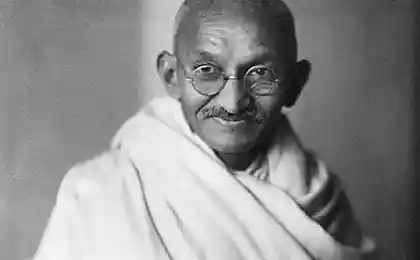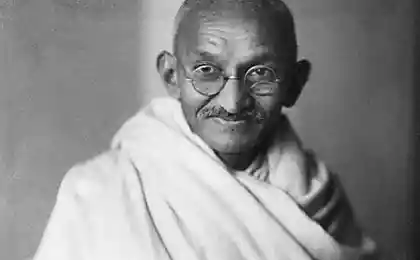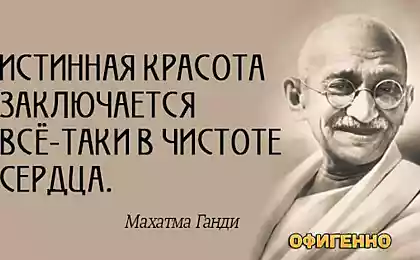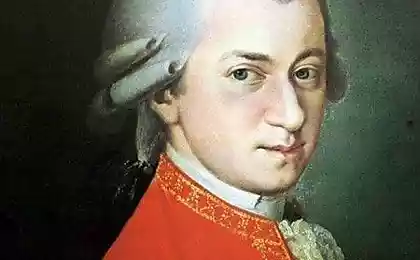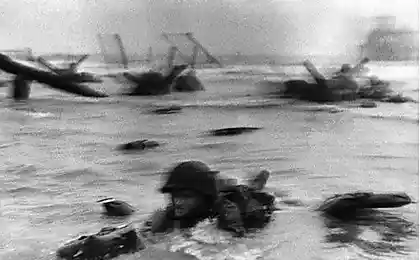220
The only way to live is to let others live.
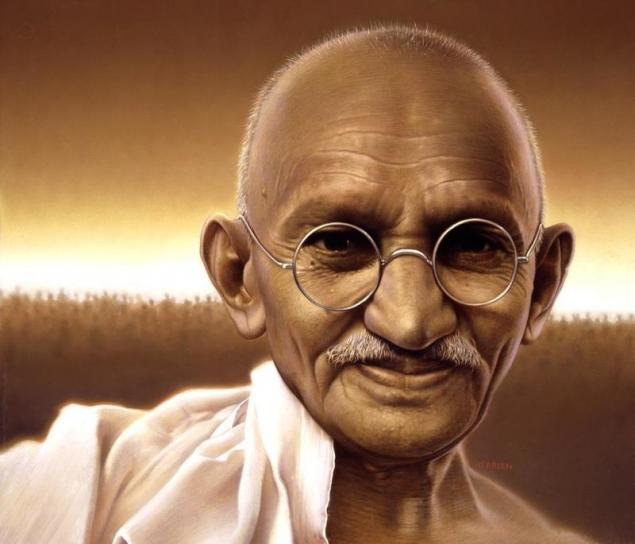
Everyone knows the name anyway. Mahatma Gandhi Leader and ideologist of the revolutionary movement for the independence of colonial India from Great Britain.
There is much to be said about Gandhi’s life and exploits, and his personality deserves to be studied and honored. But let’s digress and try to penetrate one of the inner ways of Gandhi – into his awareness of the importance of vegetarianism. After all, everyone goes this way in his own way, everyone has his own arguments and justifications, someone can not make a choice for himself or just go to the implementation of the desired.
Being by birth a Vishnuite, Gandhi from childhood did not eat meat and animal products. According to ancient laws, traditions and customs, most Hindus do not eat meat in their diet. Vegetarianism in India was a given and perhaps its greatest spiritual and moral achievement. In such conditions, the boy did not think about his diet, like many of us, accustomed from birth to meat food.
Beginning the road
However, in high school, Gandhi had an event that can be called the starting point on the path to conscious vegetarianism. Influenced by his friend and new trends in the country, Gandhi tasted meat. A small and underdeveloped boy was seduced by arguments about the energy benefits of meat, that it gives strength and self-confidence. The first acquaintance with the new food took place in a secluded place on the bank of the river, then Gandhi for a year occasionally ate meat dishes in public places. He agreed with his friends about the correctness of his choice, but there was a question that did not give him peace of mind. His conscience was tormented, he considered himself a traitor to his parents, and so the first argument in favor of not eating meat was that lying to his mother and father was worse than not eating meat. He decided to repeat his experience when he grows up and will be able to answer for his actions to his parents.
Right direction
Arriving in England to study law, Gandhi entered the second stage of his life. He took an oath to his mother not to eat meat. On this way, the young man had many problems: the English, with whom he communicated and lived, all ate meat and regularly tempted him, scolded and ridiculed. When Gandhi went to dinner with them, he usually did not eat, because being too shy, he was afraid to ask what the dishes were made of. Gandhi ate mainly what was sent to him from his native India, not the meat food of European cuisine seemed to him too fresh and unnutritive. But he didn't give up. Circumstances led him to a vegetarian community, where he found friends in spirit and interests. Once Gandhi caught Salt’s book “In Defense of Vegetarianism”, he read it cover to cover and became a vegetarian by conviction – this was the second stage of realizing his path. The main considerations during this period were health care, hygiene and economy. Here there was also an internal victory: by taking an oath to his mother, he could give her any meaning that existed in public circles about vegetarianism: (1) do not eat meat of animals and birds; (2) add fish to the first paragraph of the prohibitions; (3) completely exclude animal products from the diet (including eggs and milk). Gandhi tormented this question, and he came to the conclusion that one should not look for ways to interpret the oath and give any relaxation to the prohibition. He knew what his mother was thinking and followed the third path.
Enlightenment
Throughout his life, Gandhi subordinated himself to Truth: to search, to follow, and to practice. Religion became the center, meaning and support. After a long search, Gandhi comes to realize vegetarianism as Truth. Here all the essential earthly meanings that guided him before disappear. This is the third and final stage. Now vegetarianism for him is the way of ahimsa, the rule of which is a life without violence. Moreover, this concept expands its usual boundaries and includes the non-injury of all living things by thought, word or deed. Gandhi conducts his struggle, the weapon of which is love, kindness and compassion for all living things. Here, vegetarianism has dissolved into something more, became part of a large-scale idea.
Gandhi said, “Conquer hate with love, untruth with truth, violence with patience.” As we know, the 20th century was very cruel (terror, mass extermination, war, arbitrariness), but the method of nonviolence chosen by Gandhi proved effective and possible. In such actions there must be a titanic inner force. Is this not the most noble and difficult way?
Author: Marina Mishina
Source:ierofanta.net/edinstvenny-sposob-zhit-eto-davat-zhit-drugim.php
Workout for your back: tips to strengthen your support system
Critical rethinking of the past: who are the "white dead men"




